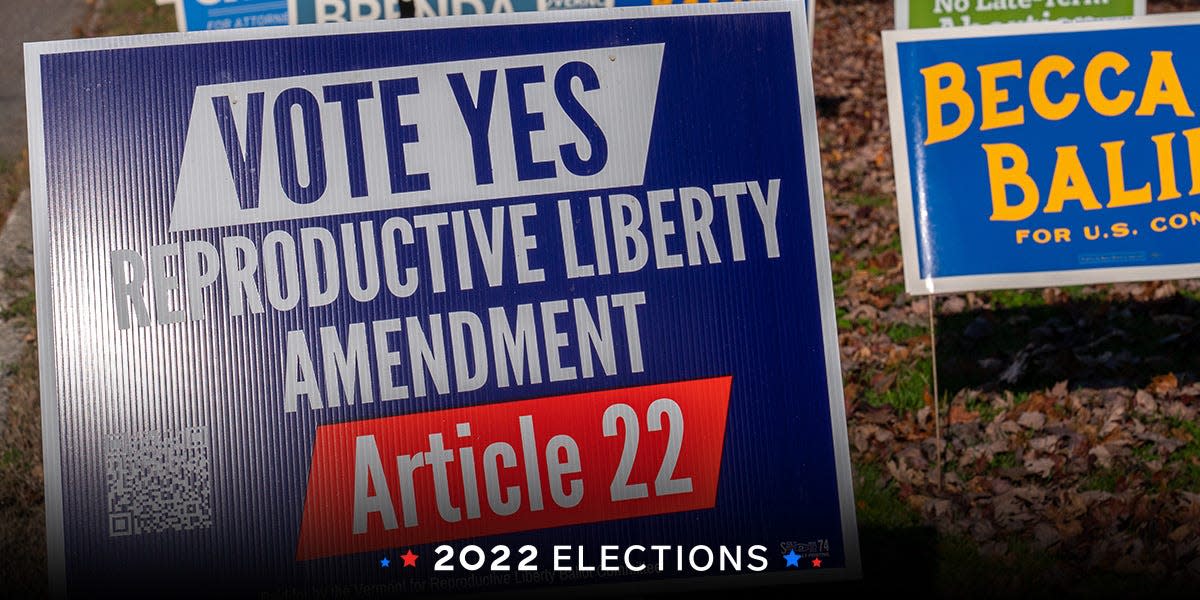Proposal 5: Vermont will vote to protect reproductive autonomy

Vermont's Proposal 5, or Article 22, would make reproductive autonomy a state constitutional right.
Proponents say that the measure will further protect abortion and contraception access.
Opponents say the measure will make it harder to legislate pro-life laws in the state.
A "yes" on Vermont's Proposal 5, also known as Article 22, will amend the state's constitution and add language that protects reproductive freedom, including abortion.
Ballot measure details
Proposal 5, which was approved by the Vermont state legislature in 2019, would add language in the constitution that states an "individual's right to personal reproductive autonomy is central to the liberty and dignity to determine one's own life course and shall not be denied or infringed."
The only exception, the bill text states, would be a compelling state interest that passes a "strict scrutiny" test. If so, the state must use the "least restrictive" method of achieving said interest.
Republican Governor Phil Scott announced that the proposal would be on the ballot weeks after the Supreme Court's decision to remove national abortion rights was leaked.
Currently, the state of Vermont has no restriction on abortion access and allows for abortions throughout a pregnancy, according to the Guttmacher Institute.
Other states that are voting to add abortion protections to their constitution include California and Michigan.
Support and opposition
Vote Yes on Article 22 includes support from Governor Scott, ACLU Vermont, Planned Parenthood, and Ben and Jerry's.
Supporters say the constitutional amendment will help further protect the right to abortion and birth control.
Vermont Right to Life is leading the opposition, and argues that the amendment will make it harder to pass laws in the future that would ban or restrict abortion.
What experts are saying
As of October, 75% of Vermont voters would vote yes on Proposal 5, while 18% would vote no and 6% are unsure, a University of New Hampshire survey found.
Read the original article on Business Insider

